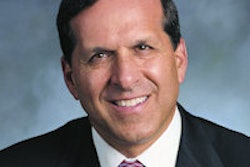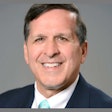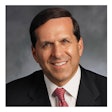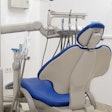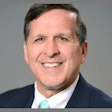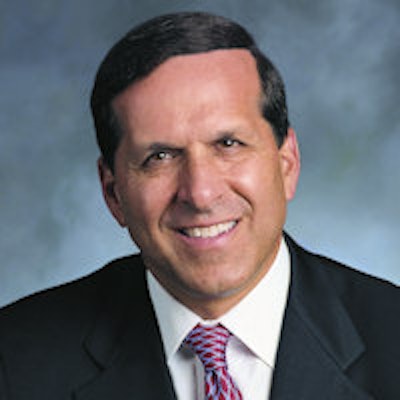
In his recently published book, Practice Turnaround: Succeeding in the New Dental Economy, Dr. Roger P. Levin uses actual case studies to illustrate how Levin Group has helped struggling dental practices regain control and accelerate growth. The following is an excerpt from one of these success stories.
For many years, owning a practice guaranteed success. It was true for my grandfather and my father. Things began to change for many dentists in my generation, and it is not true at all anymore. Hanging a shingle no longer equals automatic success.
Past results don't guarantee future success
Dr. Frederick was a 56-year-old dentist who enrolled in Levin Group management and marketing programs after he had become unable to pay his children's college tuition. Dr. Frederick was married with three children, two of them in college.
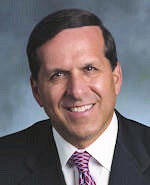 Roger P. Levin, DDS, chairman and CEO of practice management consulting firm Levin Group.
Roger P. Levin, DDS, chairman and CEO of practice management consulting firm Levin Group.He and his wife had a nice home, high-end cars, and a vacation home. Dr. Frederick worked three and a half days a week, taking off 10 weeks a year. He had a practice that produced slightly above-the-average gross revenue and had used his income through the years to fund his lifestyle. He had never been particularly challenged financially, which is why he never thought about saving for the future or college tuitions.
Dr. Frederick's practice grew in its first 10 years, but then leveled off. While he had kept up with basic inflation and occasionally raised his fees, the practice had simply been stuck in a long-term plateau. At the time Dr. Frederick contacted Levin Group, he had been deeply affected by the 2008 recession and his practice had declined by 21%. This drop in revenue began to cut into his lifestyle, making it impossible to pay for his two children's out-of-state university tuitions. Finally, Dr. Frederick realized that he was in financial trouble.
“I had just assumed the practice would continue to produce at the same level or slightly better than it always had. Of course, I was wrong.”
The classic mistake Dr. Frederick made was going to work every day without any thought of growing his practice, increasing his income, or achieving long-term financial goals.
"I thought I was doing well and I was, until the recession hit," he said. "I had just assumed the practice would continue to produce at the same level or slightly better than it always had. Of course, I was wrong."
As the economy worsened, he had been unwilling to reduce his lifestyle spending, which meant that his only option was to increase production.
Difficult decisions
Dr. Frederick had to make a choice. Sell the second home and reduce his expenditures or borrow money for his children's education and work until he was approximately 76 years of age. Since neither of these options was appealing, he decided to increase his income as rapidly as possible, even if it meant working more hours.
 Practice Turnaround: Succeeding in the New Dental Economy by Dr. Roger P. Levin.
Practice Turnaround: Succeeding in the New Dental Economy by Dr. Roger P. Levin.One Levin Group principle that has been in effect for nearly three decades is that we have never asked a dentist to work more hours to achieve goals. However, Dr. Frederick had been working at the pace of three and a half days a week for at least the last 10 years and realized he had to do things differently.
The starting point of all consulting is awareness. This is why Levin Group usually begins with a one-day practice performance analysis to gather data and evaluate the current state of the practice. In Dr. Frederick's case, we also recommended that he have a financial plan done by a fee-only, dental-knowledgeable, financial expert to determine his personal financial condition.
The results from both the analysis and financial plan weren't surprising. We found Dr. Frederick's office to be an average practice with outdated systems. He was not a highly driven person or even motivated by money. He simply had a lifestyle that absorbed all his money, and he had never thought much beyond this situation. When the recession hit the practice and his revenue plummeted by a fifth, it was a wake-up call. His financial plan revealed the little savings he had accrued would be gone if he didn't reduce his lifestyle or increase his income capability.
His commitment
He embarked on our management and marketing consulting programs. His comment was simply, "I will do whatever you tell me to do."
While this is an ideal client, it did require 18 months to recover from the 21% decline that Dr. Frederick had already experienced for several reasons:
- Many patients had already left the practice.
- The practice had a backlog of overdue patients.
- The staff was resistant to change.
- Leadership issues -- it took a while for Dr. Frederick to move from a passive leadership style to an active one.
Although Dr. Frederick would be working a few more years longer than he had anticipated, he was in much better shape -- financially and emotionally -- than a few short years ago. And now that his practice was "running on all cylinders," he was enjoying dentistry more than ever. While I admire Dr. Frederick's attitude, it is always better to become financially independent at your target age and then decide whether to keep practicing.
Roger P. Levin, DDS, is the chairman and CEO of practice management consulting firm Levin Group.
The digital version of Practice Turnaround: Succeeding in the New Dental Economy is now available online for just $59.
To jumpstart your own practice turnaround, attend Dr. Levin's upcoming seminar in Las Vegas on December 11-12. To find out more information, click here. Get 10 continuing education credits before the end of the year.
The comments and observations expressed herein do not necessarily reflect the opinions of DrBicuspid.com, nor should they be construed as an endorsement or admonishment of any particular idea, vendor, or organization.
Copyright © 2015, Levin Group, Inc. Reprinted with permission.




